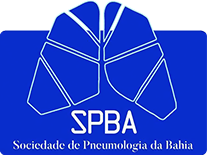Consensus management recommendations for less common non-tuberculous mycobacterial pulmonary diseases.
Christoph Lange, Erik C Böttger, Emmanuelle Cambau, David E Griffith, Lorenzo Guglielmetti, Jakko van Ingen, Shandra L Knight, Theodore K Marras, Kenneth N Olivier, Miguel Santin, Jason E Stout, Enrico Tortoli, Dirk Wagner, Kevin Winthrop, Charles L Daley, on behalf of the expert panel group for management recommendations in non-tuberculous mycobacterial pulmonary diseases*
Introduction - The 2020 updated management guideline for patients with non-tuberculous mycobacterial pulmonary diseases (NTM-PD) focuses on population, intervention, comparison, and outcome question-guided management recommendations for pulmonary disease in adults caused by Mycobacterium avium complex, Mycobacterium kansasii, Mycobacterium xenopi, and Mycobacterium abscessus.1,2 However, management options for NTM-PD caused by other clinically relevant non-tuberculous mycobacteria (NTM) covered in the previous management guideline are also needed for the care of affected patients.3 At present, treatment recommendations for patients with other NTMPDs are primarily based on expert opinions and often variable. Health-care providers of patients with NTM-PDs should consult with a clinical microbiologist who has expertise in identification and antimycobacterial drug susceptibility testing, and a clinician with expertise in managing NTM disease. However, evidence-based management decisions are needed for patients affected by NTM not covered in the 2017 guideline by the British Thoracic Society (BTS) or the 2020 American Thoracic Society (ATS), European Respiratory Society (ERS), European Society of Microbiology and Clinical Infectious Diseases (ESCMID), and Infectious Diseases Society of America (IDSA) guideline.4 The panel of members of the 2020 ATS, ERS, ESCMID, and IDSA guideline committee did systematic reviews of the literature, independently of the societies involved in the original task force, to provide management guidance for pulmonary diseases caused by seven additional organisms: Mycobacterium chelonae,
Mycobacterium fortuitum, Mycobacterium genavense, Mycobacterium gordonae, Mycobacterium malmoense, Mycobacterium simiae, and Mycobacterium szulgai. The following consensus guidance includes recommendations for antibiotics guided by in-vitro susceptibility results. With the exception of M chelonae and M fortuitum, there are no validated break points defining susceptibility and resistance for any of the antibiotics used for the organisms considered here.5
Para acessar a integra do artigo, click aqui


